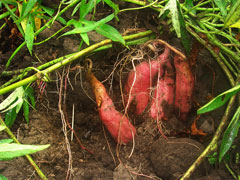When Gregor Mendel discovered the laws of inheritance by cross-pollinating pea plants and observing the results he defined a series of rules that farmers through the centuries had discovered on their own while observing nature and in trial and error.
Genetically modified (GM) crops, however, are very different than those created through selective breeding. In GM a foreign gene enhancement is spliced into the DNA of a plant and then bred to create a new species. Multi-billion dollar companies like Monsanto see GM as a universal answer to solving world hunger. But GM resistance has arisen in many countries because GM crops can have unintended consequences such as:
- Modifications to a crop through gene insertion may induce allergic responses in those who consume it.
- GM crops can cross pollinate other plants spreading their modification to related and unrelated plant species.
- Pollen from GM crops can damage indigenous animals and plants. This has been observed in butterfly populations.
- Antibiotic resistance built into GM crops can potentially transfer to humans and animals who consume it.
- The fungi and bacteria in soil can ingest GM alterations and transfer the genetic material through the soil to neighbouring plants.
- Reliance on a few GM crops could make humans and domestic animals even more susceptible to sudden crop failures.
- In inserting a preferred GM trait into a food crop it may cause unintended consequence such as lower nutritional yields.
- Insects, fungi and weeds that prey on crops may rapidly evolve resistance to genetic modifications leading to an arms race between GM creators and the natural world.
Selective breeding comes with none of these inherent concerns. Conventional breeding is not subject to controversy. And selective breeding has the same capacity as GM crops to address world hunger. As a result there is an increasing interest in many countries in developing better selective breeding techniques to develop new crop varieties.
One initiative goes by the name of HarvestPlus.Funded by the World Bank and a grant from the Bill and Melinda Gates Foundation, HarvestPlus focuses on developing new plant varieties to address the lack of micro nutrients in staple foods for the billions of people in the Developing World. Staple foods consist of beans, corn, rice, cassava, millet and sweet potato. Through selective breeding techniques the goal is to develop plants that incorporate the micro nutrients that address malnutrition and associated diseases that arise from poor health. Called biofortification, the process involves crossing hundreds of varieties of staple crops to create desirable traits in their offspring. HarvestPlus focuses on three micro nutrients recognized by the World Health Organization (WHO) as critical to diets. These are iron, zinc, and Vitamin A.

HarvestPlus recent successes include:
- Vitamin A-enhanced sweet potatos introduced into Mozambique and Uganda in 2007.
- Vitamin A-enriched cassava introduced into Nigeria in 2011.
- Iron-rich beans introduced into Rwanda and Democratic Republic of Congo in 2012.
- Zinc-fortified wheat introduced into Pakistan in 2012.
- Iron-enriched millet introduced into India in 2012.
By 2020 the sweet potato project will impact 10 million people in 17 African countries. Other bio-fortified crops include zinc-enhanced rice and Vitamin A-enriched corn (maize).
AgroSalud, likes its counterpart, HarvestPlus, focuses on bio-fortified selective breeding for staple crops indigenous to Central and South America to address the same challenges. Between the two organizations, they are demonstrating that what Mendel discovered can be an effective tool for addressing the food production challenges humanity faces with population growth largely a phenomenon of the Developing World.















